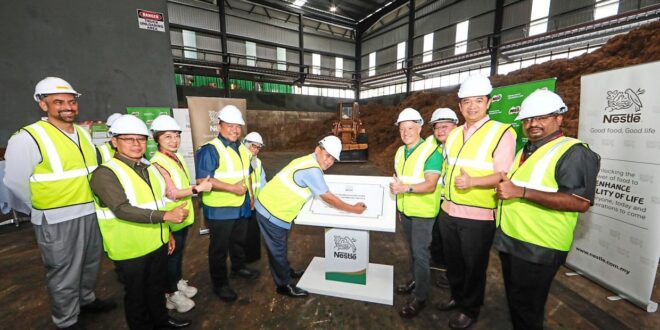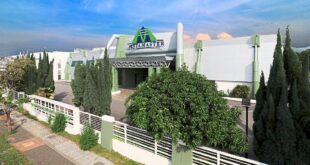REMBAU: Nestle (Malaysia) Bhd is taking a step forward in its efforts to reduce carbon emissions and achieve environmental sustainability with a new biomass power plant that started operating late last year at its factory in Chembong here.
Chief executive officer Juan Aranols said Nestle has collaborated with technology partner ENCO Systems Sdn Bhd to develop and install the fully equipped plant worth RM18 million.
He said the plant, which uses oil palm empty fruit bunches (EFB) and palm kernel shells as renewable energy source, replaces fossil fuels to generate steam used for the heating process in production operations.
“This approach is part of the natural carbon cycle and produces no long-term carbon emissions, making it carbon neutral.
“This innovative effort can further significantly reduce net carbon dioxide emissions compared to fossil fuels and also helps reduce greenhouse gases.
“This will reduce the factory’s greenhouse gas production, which is a total of 14,000 equivalent tonnes per year, equivalent to the carbon emissions of nearly 3,000 cars per year. It also directly reduces pollution, waste to landfill and protects natural resources,” he said.
He was speaking at the power plant launch officiated by Negeri Sembilan Menteri Besar Datuk Seri Aminuddin Harun here today.
Aminuddin said the existence of industries that use green technology in Negeri Sembilan reflects a collective effort towards sustainability and innovation, thus making the state a sustainable industrial centre.
He said if more industries were to switch to the use of green energy technology as Nestle has done, then the existence of industrial areas after this will not be a burden on the environment in the future.
“The Negeri Sembilan government also always takes proactive action by ensuring that all changes and developments in the industrial sector need to be identified in order to determine the best policy for the benefit of the people of this state,” he said.
Aminuddin said the state government will ensure that all objectives and policies in the future are in line with the impact of environmental sustainability if the plant developed by Nestle proves to have a good impact on the environment. – BK
 BeritaKini.biz Berita Viral Terkini di Malaysia
BeritaKini.biz Berita Viral Terkini di Malaysia





